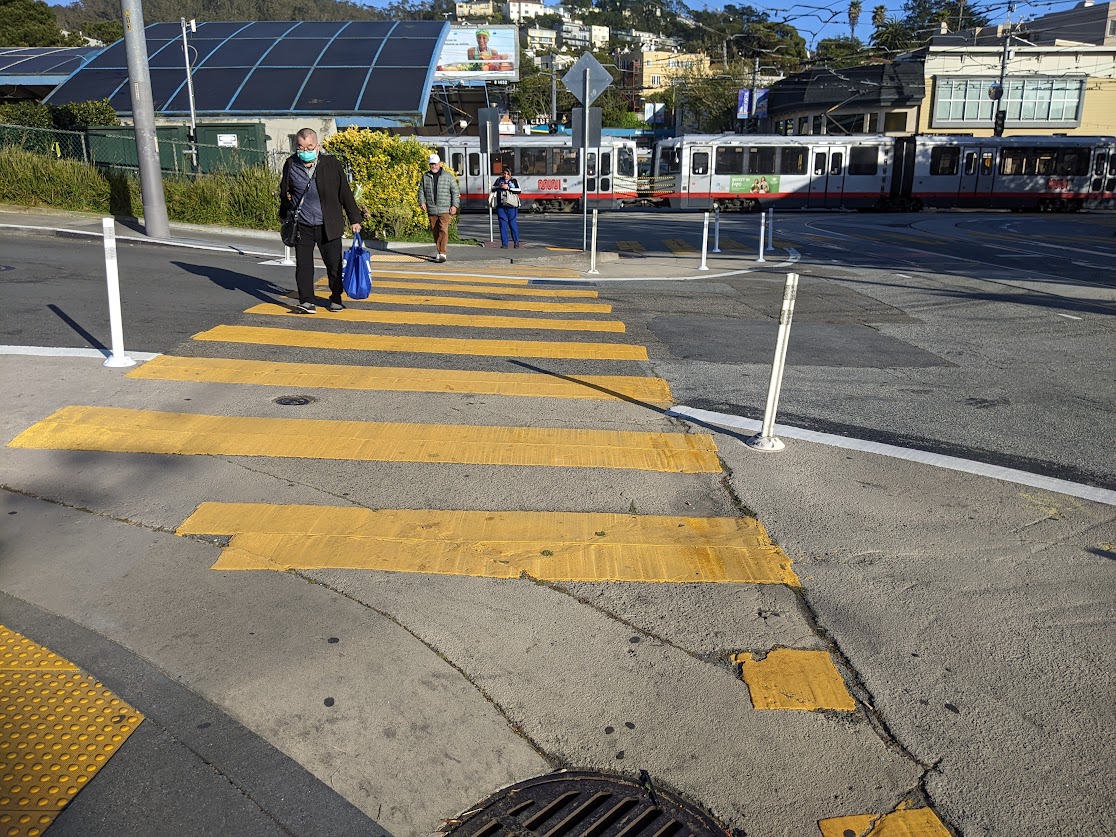San Francisco and Washington DC Announce Adoption of Open311 Platform
11:46 AM PDT on May 6, 2010
 A typical request on SeeClickFix, which will now be routed to San Francisco's 311 center and automatically added to the customer relationship management (CRM) system.
A typical request on SeeClickFix, which will now be routed to San Francisco's 311 center and automatically added to the customer relationship management (CRM) system.The trend of local governments embracing data transparency and opening their vast sets of information to the public takes a huge leap forward today with the announcement that San Francisco and Washington DC have embraced a common open source data platform for 311 service requests, or the Open311 API.
This should at a minimum save the cities' 311 systems a great deal of money and improve the transparency of government responsiveness to citizen complaints. While San Francisco doesn't have a concrete estimate for how much Open311 will save taxpayers, the current 311 system costs approximately $11 million a year to operate, much of the expense coming from the labor costs of staffing the call center.
Beyond operational cost savings, however, city technology officers and software developers involved in creating Open311 hope the platform will transform the way citizens engage with local government.
City technology officers in Washington and San Francisco compared the Open311 work to early efforts to establish 911 as the nationally recognized number to call in case of an emergency. Before 911 was the standard, callers had to either know the number for the local fire and police departments or rely on an operator to connect them.
The situation for government service requests is even more complicated. Not all cities have 311 systems and none of the current 311s share a common customer relationship management (CRM) system to oversee service requests. Until today, the work flow for 311 systems in Washington and San Francisco were incompatible, let alone New York City's system with Chicago's.
"It's important for the same way you can call 911 in any city and get an emergency response, this platform could be a unified way to access services and use new technology," said Dmitry Kachaev, Director of Research and Development for Washington DC's Office of the Chief Technology Officer (OCTO).
Kachaev said he hoped the Open311 API in San Francisco and Washington DC would become the standard API for every city currently operating a 311 system and any city considering adding one.
The real payoff will come after today, said Kachaev, when software developers use the Open311 platform to create applications for computers and smart phones that facilitate citizen reporting of common issues like potholes, fallen trees, graffiti and broken parking meters.
Civic software developer SeeClickFix has been operating in San Francisco and Washington DC for some time, but the service requests created by users haven't been integrated into the CRMs at the two cities. When a SeeClickFix email or tweet is sent to San Francisco 311, for instance, it still has to be entered manually by a 311 employee and follow up requires similar time and energy.
With the change to the Open311 API, now SeeClickFix (and other developers like City Sourced and TweetMy311) can interact directly with San Francisco's and Washington DC's CRMs bi-directionally, getting status updates on service requests automatically.
"It's totally revolutionary," said Ben Berkowitz, Founder of SeeClickFix. "There's no, 'we got the email and we're going to re-type the system.' The systems are talking to each other in unison."
Furthermore, by opening the data to third-party developers, cities are utilizing the marketplace to facilitate city services, no small matter when city budgets have been decimated during the economic crisis.
"It allows outside developers to make user-friendly tools to connect and plug into city government platforms," said Berkowitz.
SeeClickFix expects to be integrated with San Francisco and Washinton DC in short order, though Berkowitz was less optimistic about other large cities, like New York, Chicago, Los Angeles, and Houston, which he imagined were years from embracing Open311. The next big city Berkowitz predicted to get on the bandwagon is Boston, though he wouldn't guess when that will be.
Alyssa Black, Senior Business Analyst at San Francisco's Department of Technology, said the platform itself wouldn't transform city governments overnight, but the benefits of government transparency were significant and would continue to grow.
"It's really an access point to government, it helps break down walls in government," said Black, adding that current economic conditions make this even more significant. "In a budget crisis, with resources restrained, it's important to leverage community resources."
For Black, the issue was much bigger than potholes and graffiti. The eventual coordination between municipalities could improve management of security and safety concerns, she said. Black argued that Open311 APIs adopted across the Bay Area would lead to better disaster preparedness
"If we can get some of our regional partners on board with a standard API, we can leverage them as resources in crisis management," she said.
Using Social Networking Tools to Improve Civic Engagement
Beyond the issue of a common API, improving a city still requires civic engagement, which both cities hoped the software developers would facilitate. One of the ways both software developers and city technology personnel hope the public will increase their civic involvement is through social networking sites like Twitter.
In fact, some of the 20 percent drop in calls to San Francisco's 311 call
center over the past year has
already been attributed to the rise of tweeting 311 service
requests.
Philip Ashlock, the primary developer of Open311 for OpenPlans (Streetsblog's parent organization), noted that like Open311, Twitter provides an API so that Twitter staff doesn't have to develop popular applications like Tweetie for web and mobile devices, but leave that up to third party developers.
Ashlock noted that SeeClickFix has already created an online forum for people to organize around public space issues that need attention from local governments. When multiple users pile on to an existing service request, it raises the profile of the concern for the agency responsible for fixing it.
"With SeeClickFix, you see a lot of that activity happening already," he said. "It does hold those responsible for the issues more accountable."
Ashlock added, "It also changes the environment. People are confident their voice is being heard. The community at large is able to see it and know what's happening."
Rather than shying away from the increased scrutiny on the city's service requests, both San Francisco's Black and Washington DC's Kachaev welcomed further civic participation.
"There are essential services government should provide, but there are many services the public can resolve on its own," said Kachaev. "Government is a platform to provide basic infrastructure. The community provides its own innovation, its own applications."
"We need to empower citizens to try to participate," said Black.
Open311 Benefit at San Francisco City Hall
In order to bring more public attention to the Open311 API, Twilio is hosting a fundraiser tonight at San Francisco's City Hall from 6:30-10:00 pm. Proceeds from the
Speakers include Tim O'Reilly (founder of O'Reilly Media), Craig Newmark (founder of Craigslist), Mitchell Kapor (Electronic Frontier Foundation co-founder, founding chair of the Mozilla Foundation, founder of Lotus 123, adviser to Sunlight Labs and the Wikimedia Foundation), Chris Vein (Chief Information Officer of the City of San Francisco) and Philip Ashlock of OpenPlans.
At the event, Twilio will announce a contest to award developers building innovative applications that connect citizens with local civic data via Open311 and Twilio APIs. The contest will run from 12:00am on Monday, May 10th through 11:59pm on Sunday, May 23rd and the winner will be announced at the Gov 2.0 Expo in Washington D.C. on Wednesday, May 26th. For more details on the contest, click here.
Stay in touch
Sign up for our free newsletter
More from Streetsblog San Francisco
SFMTA Starts West Portal Outreach
Agency presents plans to block traffic from crossing in front of the train station




